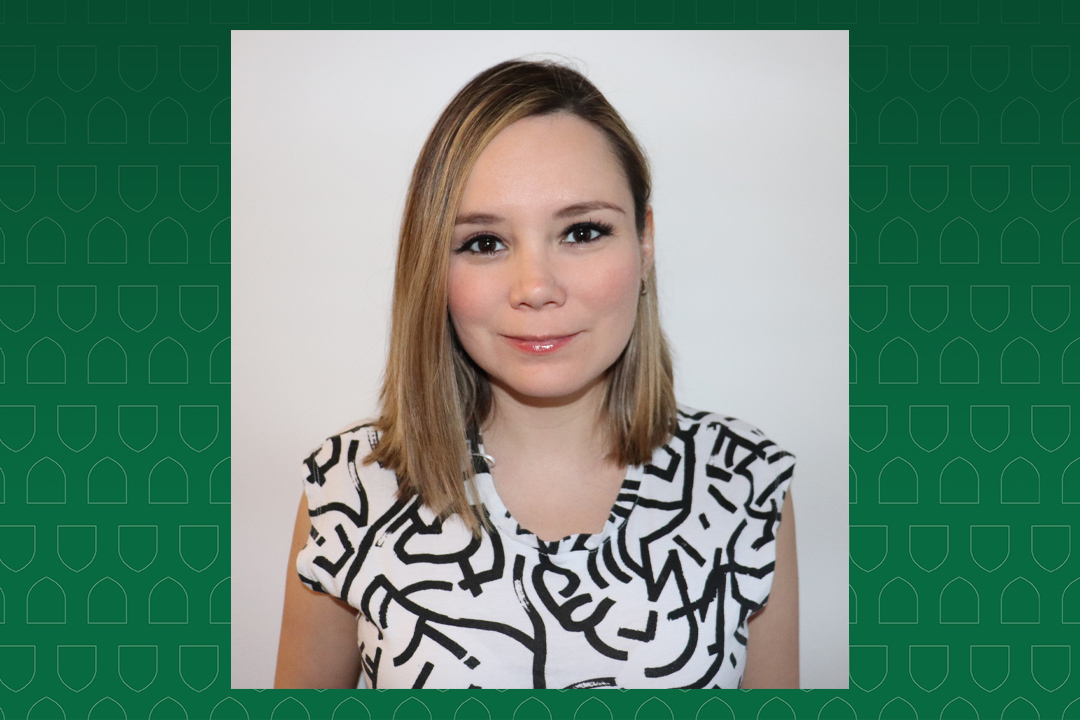
Gomez-Picos pursues PhD in a pandemic
For many Saskatchewan residents, a trip to a tropical destination is a winter ritual. But Dr. Patsy Gomez-Picos (PhD) traded in the mild temperatures of Mexico and moved to Canada for her doctoral program at the University of Saskatchewan (USask).
By Amanda WoroniukThe graduate student in the College of Medicine’s Department of Anatomy, Physiology and Pharmacology received her doctoral degree during USask’s 2021 Spring Convocation.
She completed her undergraduate degree in biotechnology in her hometown of Mazatlán, Mexico. Having previously lived in Canada as a teenager, Gomez-Picos was interested in returning for her graduate studies.
“A lot of people ask me, why did you come to Canada? I loved the country and the multicultural environment, how welcoming Canadians are, and wanted to come back,” said Gomez-Picos.
She was looking for PhD programs that included her interest in biology. The research in Dr. Brian Eames’ (PhD) lab caught her attention. He happened to be recruiting students at the time, and Gomez-Picos became his first PhD student.
“Dr. Eames had a very interesting program that involved skeletal development and many molecular biology techniques, which I had learned during my undergrad,” she said.
“I really liked the research and what it involves. It was about cartilage and bone development, but also a lot of new techniques that I didn’t have the background, but was interested to learn. Lots of novel histological and imaging techniques.”
Gomez-Picos’ research investigated the evolution of skeletal cells, and how cells make cartilage and bone in vertebrae in different animals. The research has real-world applications for osteoarthritis, a disease that affects many individuals in Canada, and has high costs to the Canadian health care system.
Further, her research looked at how genes are expressed in bone and cartilage of different animals, with a focus on the deterioration of cartilage, which occurs during normal bone development of the embryo. A similar process of cartilage deterioration develops in people with osteoarthritis.
“The main focus of my study is the evolutionary perspective. For example, how bones in mammals compare to those in chicken or fish,” she said. ”We investigated which genes are expressed in skeletal tissues of the embryo, but they actually have potential targets that can be used as therapeutic agents to treat diseases.
For her academic success, Gomez-Picos was awarded the dean’s scholarship for three years, along with the departmental scholarship for international students.
In addition, she is nominated for the USask Doctoral Dissertation Award, which is presented during convocation.
“I really appreciate that support,” Gomez-Picos said. “Without that support, I wouldn’t have been able to study abroad. There are many different (USask) scholarships that international students are eligible for that many other universities don’t have, so that’s very attractive to us.”
When the pandemic hit and USask research was paused, Gomez-Picos was fortunate to have her experiments already completed. She was working on her thesis and was also balancing motherhood, having given birth to her daughter in 2019.
While it wasn’t easy to balance academia and parenting, Gomez-Picos managed to successfully juggle both.
“I did not expect to finish graduate school during a pandemic. No one could have imagined this,” she said. “For me, I was able to spend my daughter’s first year with her, but at the same time it was very challenging, because I had to write my thesis at the time.”
For students who may have struggled with their studies, she had words of encouragement.
“I want to say to students, they are not alone. Just keep working hard,” she said. “It’s been tough, mentally speaking, but we are starting to see the light at the end of the tunnel.”
